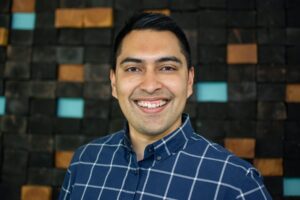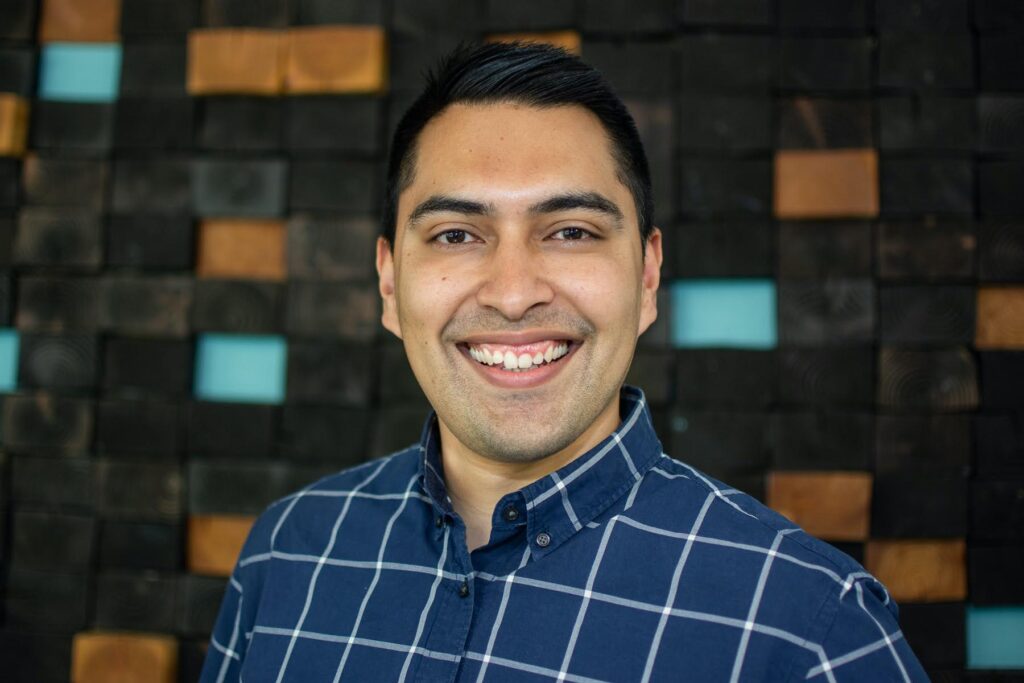Source: Michigan News

José Lemus, who earned his Master’s of Public Policy from the University of Michigan Ford School in 2022, works as a senior advisor for the Jobs and Economy Team in the city of Detroit’s mayor’s office.

José Lemus, who earned his Master’s of Public Policy from the University of Michigan Ford School in 2022, works as a senior advisor for the Jobs and Economy Team in the city of Detroit’s mayor’s office.
José Lemus, who earned his Master’s of Public Policy from the University of Michigan Ford School in 2022, works as a senior advisor for the Jobs and Economy Team in the city of Detroit’s mayor’s office. He is focused on public-private partnerships to support the city’s infrastructure and economic development objectives.
While he was at the Ford School, Lemus had the opportunity to work with both private sector – National Coalition of Community Capital – and public sector partners – Lincoln Park, Mich. These experiences helped Lemus understand that effective policy work must account for policy implementation just as much as policy analysis.
What are you working on now?
As a senior advisor, I focus on economic development, real estate development, and business attraction with a central goal of making sure we have healthy and equitable neighborhoods throughout the city. My goal is to help development teams and community members navigate city processes to make sure that their visions in terms of real estate development, institutional development, and economic development come to fruition.
What that looks like is everything from helping small businesses identify the steps towards opening up to helping major employers better support resident priorities within their real estate development initiatives.
For example, we are working with residents and developers alike on projects like the Michigan Central Station, the District Detroit, the University of Michigan’s Center for Innovation, to ensure that those buildings are not only physical structures within the city, but are community-focused economic engines within our city.
How did your experience at the Ford School prepare you for this work?
Before joining the Ford School, I worked as a community organizer and focused on workforce development and asset based community development in Nebraska. I was focused on helping residents engage with their civic institutions at the local and at the state level. I worked with residents going door-to-door to identify their assets, their community, and supporting them in building assets such as farmers markets, business associations,and collective communities.
Taking that to the next level—how do we build some of the community sustainability aspects as well as economic and financial sustainability with community-led initiatives. That’s really what pushed me to go to the Ford School… trying to understand what are the systemic components of economic and community sustainability around initiatives like these.
While at the Ford School, I participated in the Practical Policy Engagement program with Chris Miller and the National Coalition of Community Capital to try to understand how we build investment funds that are focused on resident priorities, small business, neighborhood and community priorities.
What advice do you have for others wanting to work for the city? Are some departments better than others for recent grads?
My advice would be to get involved in the policy area of your interest. The Ford School offers wonderful hands-on learning experiences like P3E and PCLP where you are partnered with policy practitioners to solve real world questions. Beyond the Ford School, you can volunteer with local agencies, attend city and neighborhood block club meetings, or create interest groups. Even if you don’t end up wanting to stay in that policy area, having hands-on experience will help you better understand what kind of work motivates you professionally.
In terms of the city of Detroit, we often have open positions. Interested applicants can visit our city website to find open positions.
For now I’d love to highlight three great departments or initiatives with potential openings:
Our budget office is often hiring policy analysts. The budget office is an intersectional policy space for people to see different swaths of the city. It’s a really great space to get a full understanding of how the city government operates and how you can build long-term sustainability within city initiatives.
Beyond the budget office, another innovative space is the Joe Louis Greenway initiative. If you are interested in urban planning, design, community relations, and neighborhood engagement, the city of Detroit is building what we would call a bike superhighway, a ring of bicycle-accessible space around the city.
Our priority is to make sure that Detroiters in every neighborhood have easy access to non-motorized infrastructure to get around the city with ease. Right now, we’re in the construction and community engagement phases for some of the sections.
The final department that I’d like to highlight would be our office of sustainability. The mayor has recently appointed a new director and they should be looking to expand their team in the coming months. I’m shouting out this department because they will seek to partner with Detroit’s thriving environmental justice community to champion environmental equity within all of our city initiatives.


